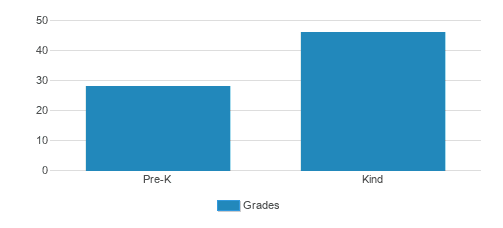First Colony Montessori is closely to the Montessori Method. This method was developed by Italian educator, Dr.
Maria Montessori, in the early twentieth century. The Method is built upon the idea that children develop and think differently than adults, and that they are competent beings, capable of self-directed learning.
To encourage this capability, Dr. Montessori developed and refined numerous objects and tools that facilitate every phase of development, from motor skills to concrete knowledge to abstraction.
Language, mathematics, spatial learning, self-discovery, music and art - they're all incorporated into the Montessori approach.
We encourage children to work at their own pace in a non-competitive atmosphere, to gain an understanding of themselves and develop a sensitivity to others.
Children may work alone or in groups, all in an atmosphere of courtesy and respect.
School Overview
School Type
Religious Affiliation
Grades Offered
Grades Nursery/Preschool-Prekindergarten
Student Body
Total Students
74 students
Student Body Type
Co-ed
% Students of Color
78%
State avg.: 41%
Students by Grade

Academics and Faculty
Total Classroom Teachers
6 teachers
Student : Teacher Ratio
12:1
National avg.: 13:1
Tuition and Acceptance Rate
Admission Deadline
None / Rolling
Source: National Center for Education Statistics (NCES)
Frequently Asked Questions
When is the application deadline for First Colony Montessori?
The application deadline for First Colony Montessori is rolling (applications are reviewed as they are received year-round).
Recent Articles

A Parent's Guide To Understanding High School Teaching Methods
This comprehensive guide helps parents navigate the various teaching methods used in today's high school classrooms. By understanding these approaches, you'll be better equipped to support your teen's learning journey, communicate effectively with teachers, and create a complementary learning environment at home.

February 08, 2025
Social Emotional Learning: Education's Hidden SymphonyA musician's perspective on Social Emotional Learning reveals how this educational framework orchestrates success through five essential emotional competencies.

January 24, 2025
A Roadmap For Starting A Private SchoolUse this roadmap as a set of talking points with your trusted mentors and professionals to start the private school of your dreams. You're not alone. Over the years, hundreds of folks like you have had the same dream. From Quintilian to Maria Montessori to Lucy Madeira Wing, visionary educators have established schools to teach according to their beliefs and methodologies.
















